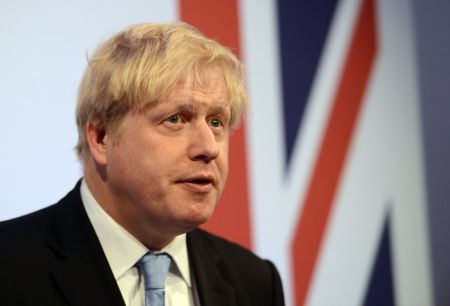Boris Johnson has said that London can only thrive if it continues to welcome immigrants but he has added that, once immigrants arrive, they must be strongly encouraged to integrate into British society.
Speaking at Investment 2020, an investment conference in London, Mr Johnson, who studied classics at Oxford, compared the capital to two city states in ancient Greece; Athens and Sparta. Mr Johnson said that London would do better to follow the example of Athens, rather than Sparta, if it is to survive and prosper.
‘Look at Athens and Sparta’ he said; ‘Athens was an open city and Sparta kicked people out. Go and look at the ruins of Athens and Sparta now and ask which of the two cities made the greatest contribution to civilisation’.
Athens and Sparta were rivals for supremacy in the Aegean in the fifth century BC. They were very different societies with different attitudes to foreign residents. Sparta was a warlike state with little love for poetry or the arts. It was an austere society devoted to war. It limited citizenship to a small caste that had been educated according to the Spartan custom. Other residents were free, non-citizens known as perioikoi, and slaves owned by the State known as helots.
The Spartan State was so warlike that many citizens were killed in battle. Because it was so difficult for foreigners to attain citizenship, the population of citizens began to decline By the fourth century BC, the helots (slaves) greatly outnumbered the citizens and Spartans lived in constant fear of rebellion.
The population became so small that Sparta could not prevent the rise of the Macedonian empire of Philip of Macedon. Soon thereafter, Philip’s son Alexander the Great was able to conquer the known world. Athens, by comparison to Sparta at least, was a more open society. It is said that during the sixth century BC, the Athenian statesman Solon called on foreigners to settle in the city and offered citizenship to those who came. But by the fifth and fourth centuries BC, the Athenians had become much less welcoming. But, compared to the Spartans, they were hospitable enough.
Metics
In ancient Athens, foreign residents were known as Metics. The Metics were not able to vote but were allowed to use the court system. The Metic status could last for several generations and passing oneself of as a citizen was an offence. Records were kept of who was a Metic and who was not but, because records were not as complete as they would be today, disputes sometimes arose as to who was a Metic and who was a citizen.
If a dispute arose about whether an individual was a Metic or a citizen, the matter would end up in court. The evidence of members of the local community would decide the matter. If the community decided that the individual in question was a citizen, the records would be adjusted to show this. If the community decided he was a Metic, then he would be sold into slavery.
Perioikoi
Nonetheless, living as a Metic in Athens was clearly attractive as many more foreign citizens lived voluntarily in Athens as Metics than lived as perioikoi (foreign residents) in Sparta. This appears to support Mr Johnson’s view that Athens was friendlier to immigrants than its rival. No doubt the presence of these foreign residents helped Athenian commerce flourish resulting in increased wealth and so facilitating the flowering of Athenian arts and philosophy.
Mr Johnson’s point, of course, is that a liberal immigration policy helps a city’s culture thrive. He warns that a restrictive immigration policy will damage London.
This seems to be a direct challenge to Prime Minister David Cameron, who has pledged to reduce net immigration into the UK from 250,000 per year when he came to power in 2010 to below 100,000 by 2015.
Mr Johnson said the ‘tens of thousands’ pledge ‘was a policy failure of politicians, saying they wanted to control immigration which they couldn’t do because of free movement’.
Mr Johnson’s comments are bound to rekindle rumours that he is preparing to challenge for Mr Cameron’s job after the next election in 2015. Mr Johnson and Mr Cameron were at school together at the famous Eton College and later studied at Oxford University.
Former school and university friends remember that Mr Johnson always thirsted after political power while Mr Cameron showed no interest in it. Some suggest that Mr Johnson has not abandoned hope of becoming prime minister. Perhaps his latest outburst is confirmation of this.










